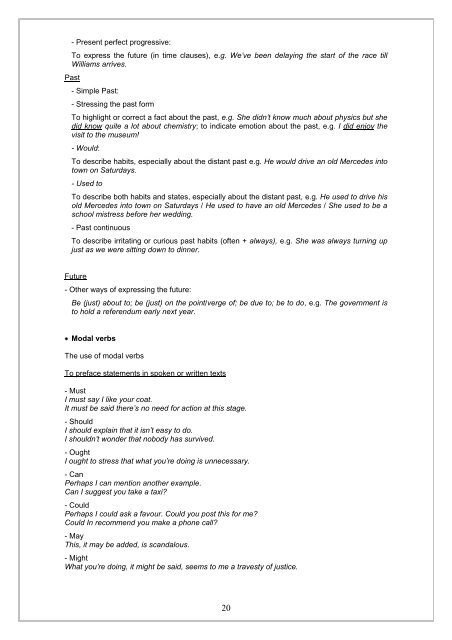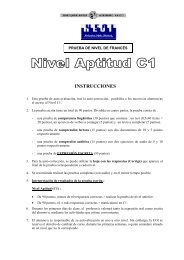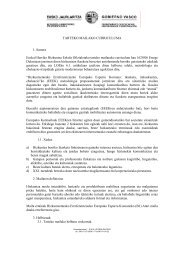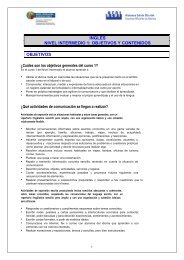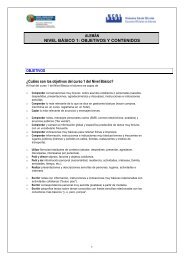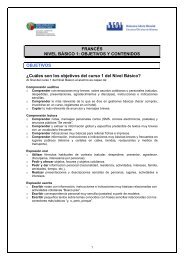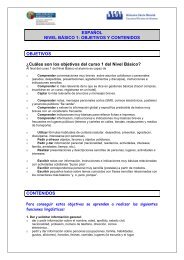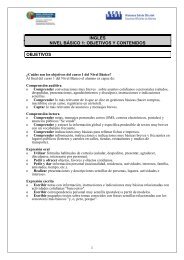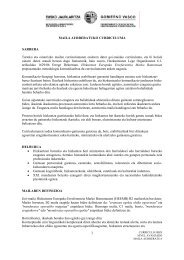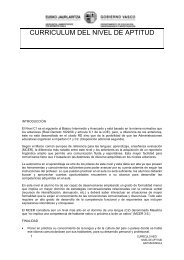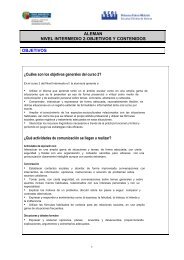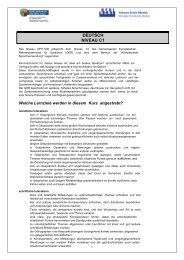C1 – Course Syllabus - Escuelas Oficiales de Idiomas del País Vasco
C1 – Course Syllabus - Escuelas Oficiales de Idiomas del País Vasco
C1 – Course Syllabus - Escuelas Oficiales de Idiomas del País Vasco
Create successful ePaper yourself
Turn your PDF publications into a flip-book with our unique Google optimized e-Paper software.
- Present perfect progressive:<br />
To express the future (in time clauses), e.g. We‟ve been <strong>de</strong>laying the start of the race till<br />
Williams arrives.<br />
Past<br />
- Simple Past:<br />
- Stressing the past form<br />
To highlight or correct a fact about the past, e.g. She didn‟t know much about physics but she<br />
did know quite a lot about chemistry; to indicate emotion about the past, e.g. I did enjoy the<br />
visit to the museum!<br />
- Would:<br />
To <strong>de</strong>scribe habits, especially about the distant past e.g. He would drive an old Merce<strong>de</strong>s into<br />
town on Saturdays.<br />
- Used to<br />
To <strong>de</strong>scribe both habits and states, especially about the distant past, e.g. He used to drive his<br />
old Merce<strong>de</strong>s into town on Saturdays / He used to have an old Merce<strong>de</strong>s / She used to be a<br />
school mistress before her wedding.<br />
- Past continuous<br />
To <strong>de</strong>scribe irritating or curious past habits (often + always), e.g. She was always turning up<br />
just as we were sitting down to dinner.<br />
Future<br />
- Other ways of expressing the future:<br />
Be (just) about to; be (just) on the point/verge of; be due to; be to do, e.g. The government is<br />
to hold a referendum early next year.<br />
Modal verbs<br />
The use of modal verbs<br />
To preface statements in spoken or written texts<br />
- Must<br />
I must say I like your coat.<br />
It must be said there‟s no need for action at this stage.<br />
- Should<br />
I should explain that it isn‟t easy to do.<br />
I shouldn‟t won<strong>de</strong>r that nobody has survived.<br />
- Ought<br />
I ought to stress that what you‟re doing is unnecessary.<br />
- Can<br />
Perhaps I can mention another example.<br />
Can I suggest you take a taxi?<br />
- Could<br />
Perhaps I could ask a favour. Could you post this for me?<br />
Could In recommend you make a phone call?<br />
- May<br />
This, it may be ad<strong>de</strong>d, is scandalous.<br />
- Might<br />
What you‟re doing, it might be said, seems to me a travesty of justice.<br />
20


